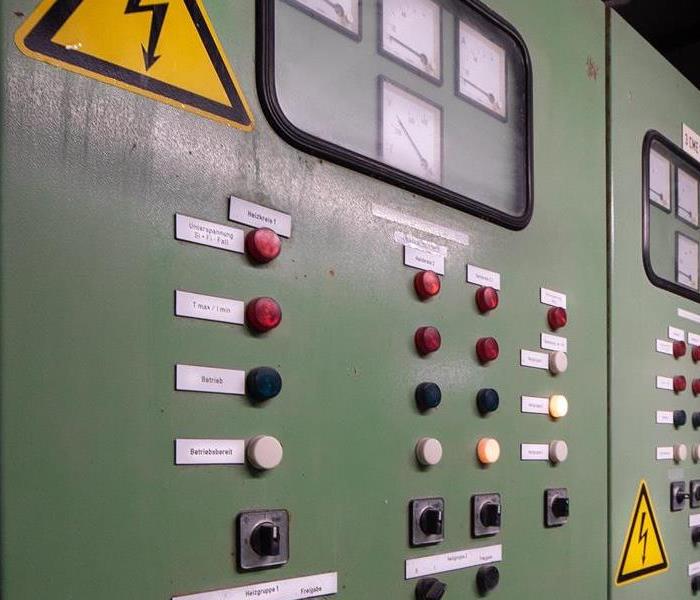Storm Safety: Generator Tips
9/30/2021 (Permalink)
 Infrequent usage can sometimes mean that our grasp on generator safety isn’t as strong as we might think.
Infrequent usage can sometimes mean that our grasp on generator safety isn’t as strong as we might think.
During or after a storm, generators often come to the rescue, restoring a sense of normalcy by restoring electricity. They facilitate a multitude of functions necessary for daily life when the power goes out, such as illuminating your home or business, making sure that your refrigerator stays cold, and charging your electronics. Power outages, thankfully, are not frequent occurrences. All the while, infrequent usage can sometimes mean that our grasp on generator safety isn’t as strong as we might think. Consumer Reports confirms that generators pose several safety concerns, ranging from carbon monoxide poisoning to fire hazards. There are a few steps that you can take in order to protect your home or business from these very dangerous generator usage outcomes. In this blog, we will share some of our top safety tips when it comes to generator usage during a power outage.
1. Keep Your Generator Outside
The risk of carbon monoxide poisoning can be increased when your generator is housed in any enclosed, indoor area, including basements and garages. According to the American Red Cross, it is beneficial to keep generators outdoors and as far away from doors and windows as possible, as placing your generator within close proximity of entrances to your home or business increases the chances of carbon monoxide making its way inside. Another helpful step is installing a carbon monoxide detector and alarm system inside of your home or business, which will alert those living or working inside of the property to exit as quickly as possible.
2. Store Fuel in a Safe Location
In order to power your home during a power outage, generators run on fuel. Before a storm, you may stock up on fuel. When it comes to storing generator fuel, it is best to keep it away from living spaces in areas that are cool, dry, and well-ventilated. Fuel can ignite quickly when it comes into contact with an item that instigates fire, but making sure that your generator fuel is being stored a safe distance away from such items can help reduce the chances of a fire igniting.
3. Consider Installing a Transfer Switch
Transfer switches can be a helpful tool in reducing the risk of an electrical fire when using a generator. Extension cords present a fire hazard and “backfeeding”, which occurs when you plug your generator directly into a wall outlet, can pose an increased threat of electrocution. A transfer switch eliminates the need for either, as it allows your generator to be plugged directly into your circuit panel, thereby reducing the risk of fire. Transfer switches sometimes also display wattage usage levels, helping you prevent your generator from overloading.
SERVPRO Is Standing By
A strong emphasis should be placed on caution in the event that you decide to power your residential or commercial business with a generator during a power outage. Make sure that you have a plan if a generator emergency, such as a fire igniting, occurs. A beneficial first step to take when disaster strikes is making a phone call to SERVPRO of Harrisburg West. If you discover fire damage resulting from your generator, call us at (717) 510-6779 and our team of fire damage restoration specialists will respond immediately. Learn more about our professional Storm Damage Restoration, Commercial Storm Damage Restoration, Fire Damage Restoration, and Commercial Fire Damage Restoration services. Trust SERVPRO, no matter what your emergency, to make it “Like it never even happened.”





 24/7 Emergency Service
24/7 Emergency Service